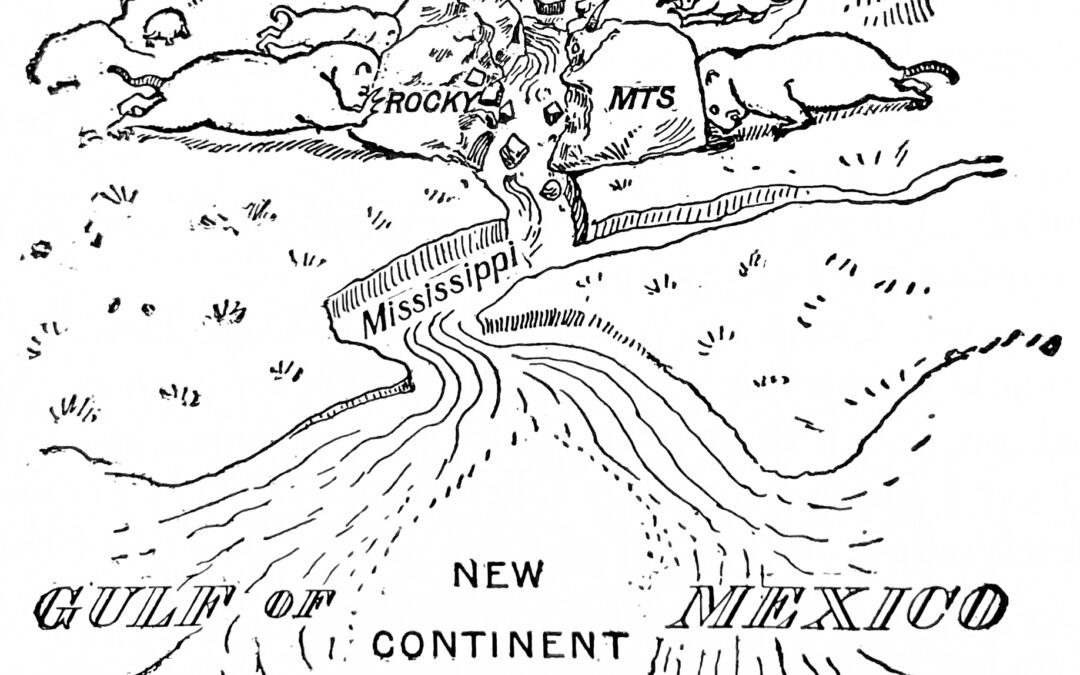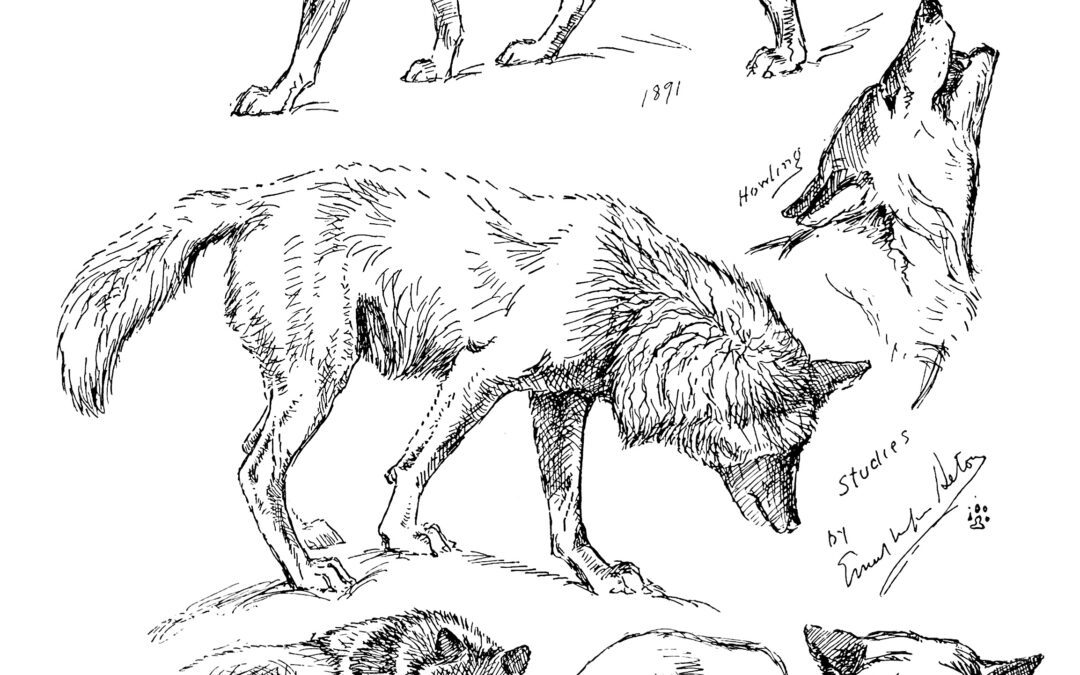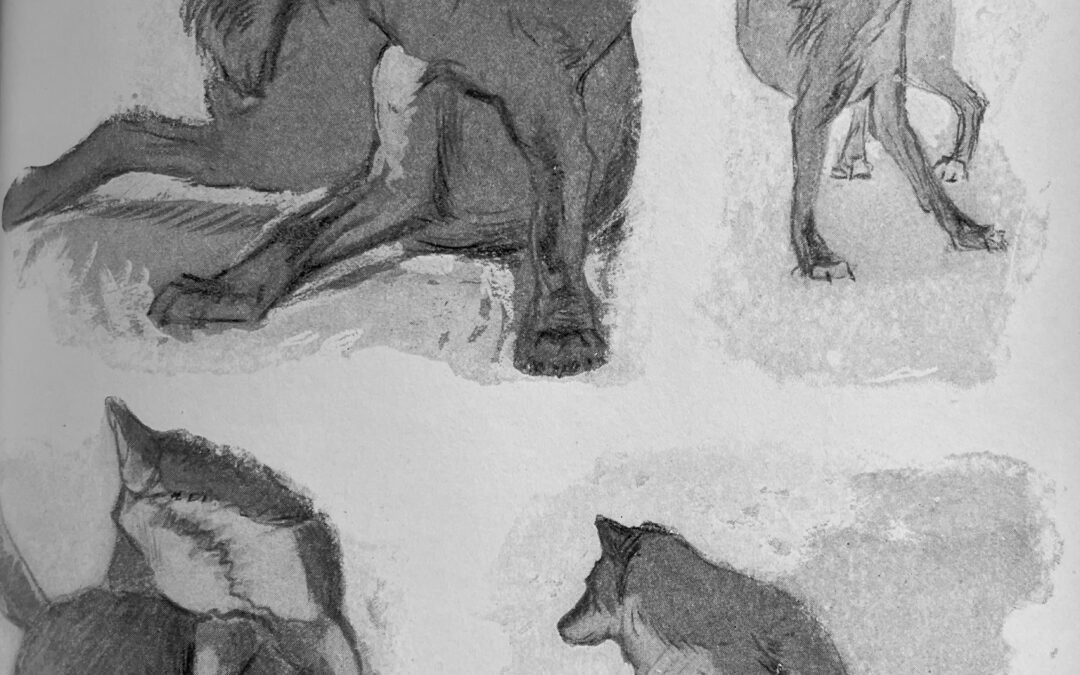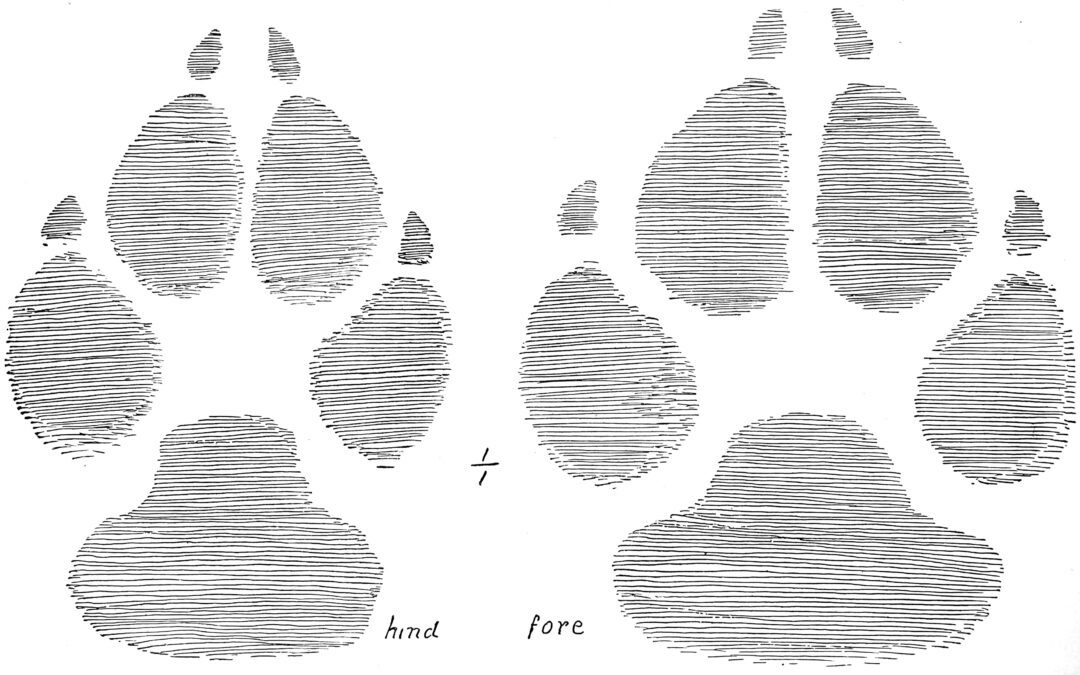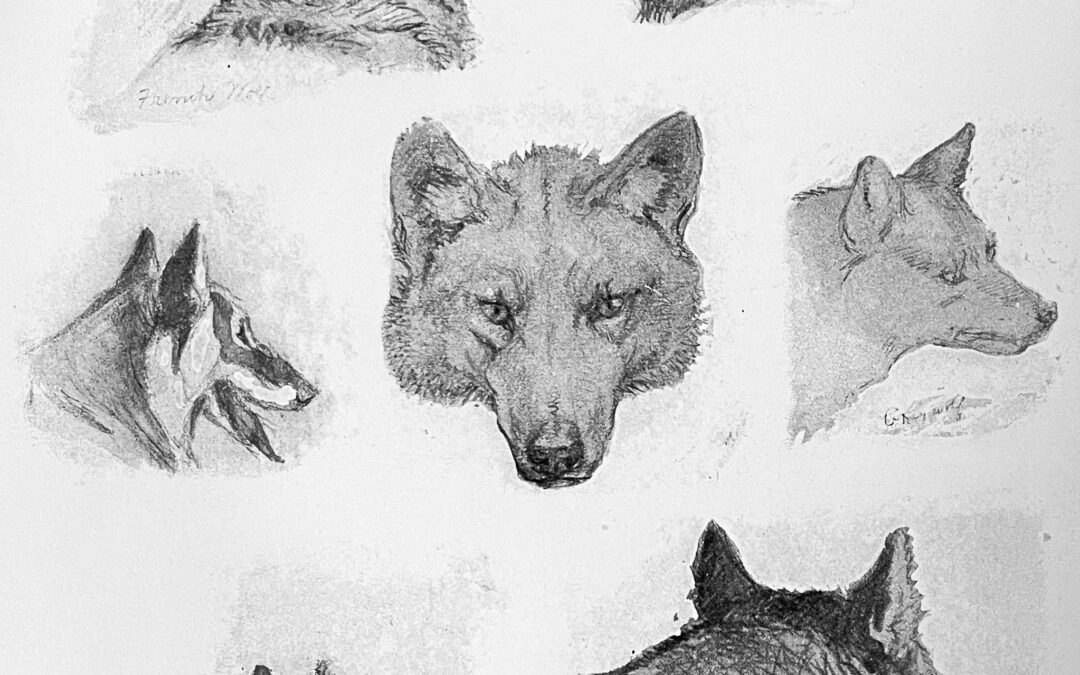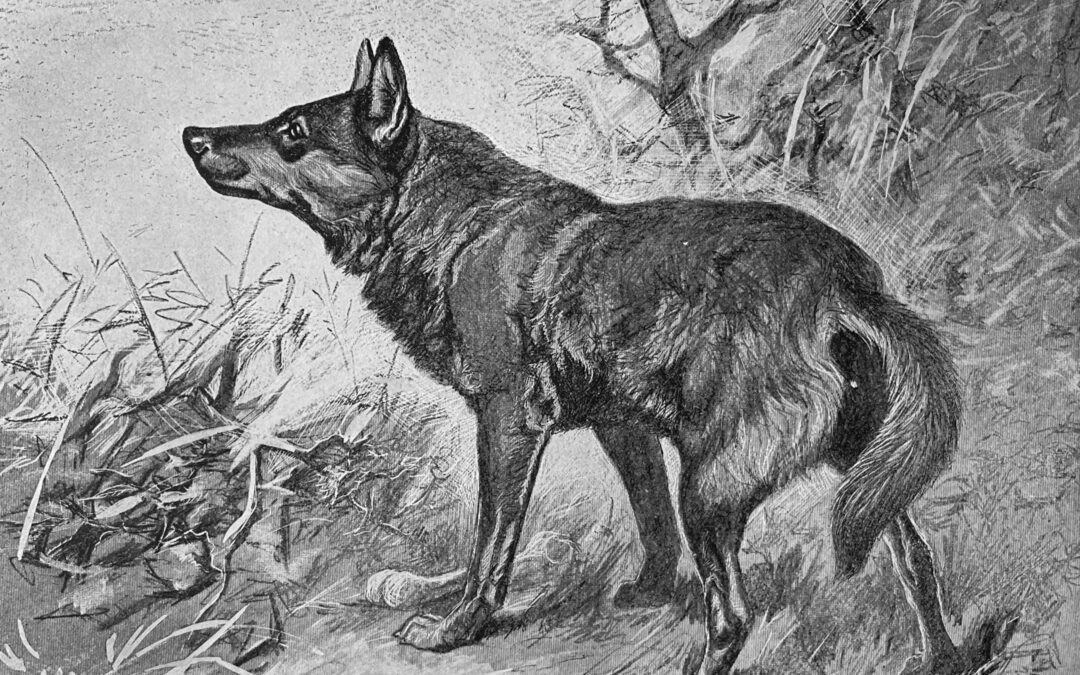
by David L. Witt | Feb 5, 2026 | Seton Essays
New Continent by Ernest Thompson Seton According to Ernest Thompson Seton, Pocket Gophers reshape the landscape by moving vast amounts if earth each year. The little creatures have a special task—tearing down mountains and creating new continents from the debris. The...

by David L. Witt | Oct 22, 2025 | Seton Essays
Wolf Studies by Ernest Thompson Seton This is one in an ongoing series of nature essays and artwork from Lives of Game Animals (1925-1928) by Ernest Thompson Seton. Seton’s analysis of Gray Wolf behavior was groundbreaking at the time. Since he devoted a large section...

by David L. Witt | Oct 6, 2025 | Seton Essays
Gray-Wolf Scratching Himself by Ernest Thompson Seton This is one in an ongoing series of nature essays and artwork from Lives of Game Animals (1925-1928) by Ernest Thompson Seton. Seton’s analysis of Gray Wolf behavior was groundbreaking at the time. Since he devoted...

by David L. Witt | Sep 30, 2025 | Seton Essays
Tracks of Large Gray-Wolf (Life Size) by Ernest Thompson Seton This is one in an ongoing series of nature essays and artwork from Lives of Game Animals (1925-1928) by Ernest Thompson Seton. Seton’s analysis of Gray Wolf behavior was groundbreaking at the time. Since...

by David L. Witt | Sep 24, 2025 | Seton Essays
Life Studies of Wolves by Ernest Thompson Seton This is one in an ongoing series of nature essays and artwork from Lives of Game Animals (1925-1928) by Ernest Thompson Seton. Seton’s analysis of Gray Wolf behavior was groundbreaking at the time. Since he devoted a...

by David L. Witt | Sep 10, 2025 | Seton Essays
The Gray Wolf by Ernest Thompson Seton, 1892 for Forest and Stream magazine This is one in an ongoing series of nature essays from Lives of Game Animals (1925-1928) by Ernest Thompson Seton. Seton’s analysis of Gray Wolf behavior was groundbreaking at the time. Since...
